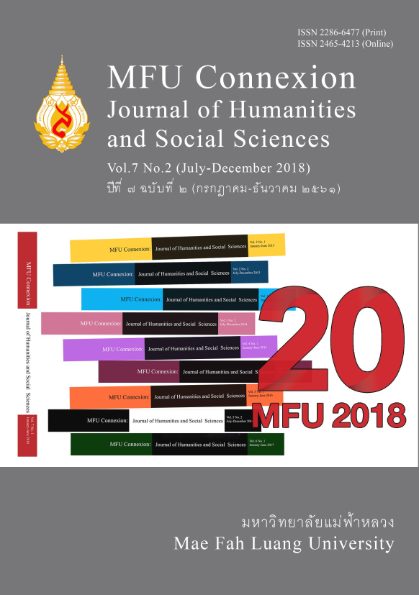The Novel as Tragic Form
Main Article Content
Abstract
This essay puts forward a theoretical definition of the tragic and argues, against orthodox criticism, that some novels should be considered tragic forms. The tragic is defined as any form that articulates dialectically the uncertainty of action and the fact of suffering. The formalist and idealist conceptions of tragedy have both tended to exclude the modern novel from the tragic. Against this exclusion, it is argued that the essence of the tragic is to remind us that we cannot control the consequences of our actions and that we are not always able to avoid the suffering that they cause. Novels, at least some of them, have retained this fundamental message of the ancient tragedy and exercise a salutary political and ethical effect in the modern world.
Article Details
Copyright
Connexion: Journal of Humanities and Social Sciences has an exclusive right to publish the accepted articles in any form. However, the author retains the following rights:
1. The right to the ownership of the article;
2. The right to use all or part of the article in his/her other works;
3. The right to re-produce the article for personal use or for use in the author’s organisation, in which case the author must obtain permission from Connexion: Journal of Humanities and Social Sciences;
4. The right to make copies of all or part of the work for educational use or for the author’s use in classroom teaching; and
5. The right to include the work (both the preprinted and printed versions) in an institutional repository.
References
Aristotle. (1902) The poetics of Aristotle, London: MacMillan.
Bakhtin, M. (1982) The dialogic imagination: Four essays, Austin, TX: University of Texas Press.
Bakhtin, M. (1996) Collected works, Moscow: Russkie Slovari.
Beistegui, M., & Sparks, S. (eds.). (2000) Philosophy and tragedy, London: Routledge.
Benjamin, W. (1998) The origin of German tragic drama, London: Verso.
Benjamin, W. (1996) ‘Fate and character’, in selected writings, pp. 201-205, Cambridge: Belknap.
Camus, A. (1953) The rebel: An essay on man in revolt, London: Hamish Hamilton.
Camus, A. (1955) The myth of sisyphus, and other essays, London: Hamish Hamilton.
Diogenes Laertius. (1931) Lives of eminent philosophers, vol. 2, Cambridge, MA: Harvard University Press.
Dostoyevsky, F. (1950) Crime and punishment, New York: McGraw-Hill.
Eagleton, T. (2003) Sweet violence: The idea of the tragic, Malden, MA: Blackwell Publishing.
Eagleton, T. (2005) ‘Tragedy and Revolution,’ in C. Davis, J. Milbank & S. Žižek (eds.), Theology and the political: The new debate, Durham and London: Duke University Press.
Euripides. (1994) Cyclops. Alcestis. Medea, Cambridge, MA: Harvard University Press.
Kafka, F. (1992) The trial, New York: Schocken.
Kaufmann, W. (1968) Tragedy and philosophy, Princeton, NJ: Princeton University Press.
Kermode, F. (2000) The sense of an ending: Studies in the theory of fiction, Oxford: Oxford University Press.
Lukács, G. (1971) Theory of the novel: A historico-philosophical essay on the forms of great epic literature, London: Merlin.
Moretti, F. (2006) The novel, Princeton, NJ: Princeton University Press.
Nietzsche, F. (1999) The birth of the tragedy and other writings, Cambridge: Cambridge University Press.
Plato. (2008) The symposium, Cambridge: Cambridge University Press.
Plato. (1935) The republic, vol. 2, Cambridge, MA: Harvard University Press.
Shakespeare, W. (1945) Complete works, London: Oxford University Press.
Sophocles. (1887) The oedipus tyrannus of Sophocles, Cambridge: Cambridge University Press.
Steiner, G. (1960) The death of tragedy, London: Faber.
Szondi, P. (2002) An essay on the tragic, Stanford, CA: Stanford University Press.
Vernant, J-P., & Vidal-Naquet, P. (1981) Tragedy and myth in ancient Greece, Brighton: Harvester Press.
Williams, R. (1979) Modern tragedy, London: Verso.
Žižek, S. (1989) The sublime object of ideology, London: Verso.


